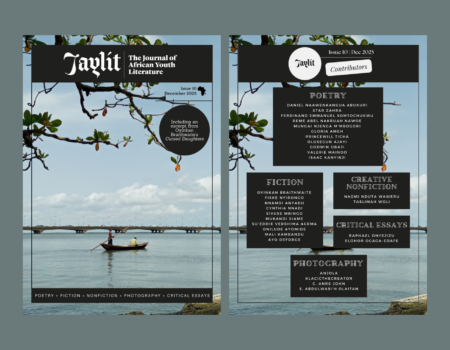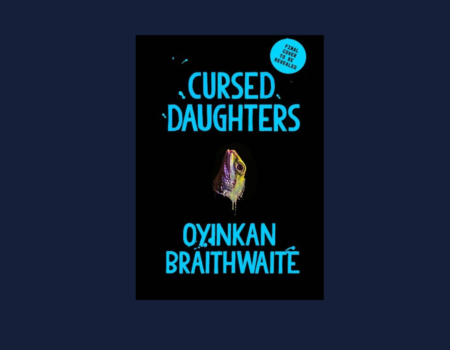The Royal Society of Literature (RSL) has named Ekow Eshun and Nick Makoha among its 28 new Fellows for 2025. Both writers of African heritage were officially inducted during the society’s annual summer ceremony held on Wednesday at the Garden Museum in London.
The event marked a continuation of the RSL’s tradition of honouring individuals who have made significant contributions to literature in the United Kingdom and beyond. New Fellows signed the RSL Roll Book—an archival record dating back to 1825—using pens once owned by iconic British writers such as Lord Byron and George Eliot.
Ekow Eshun, born in London to Ghanaian parents and raised partly in Accra, is a noted writer, curator, and broadcaster. a British writer, journalist, broadcaster, and curator. He rose to prominence as a trailblazer in British culture. He was the first Black editor of a major magazine in the UK (Arena Magazine in 1997) and continued to break ground as the first Black director of a major arts organisation, the Institute of Contemporary Arts in London.
Described as a “cultural polymath” by The Guardian, he has been at the heart of creative culture in Britain for several decades, authoring books, presenting TV and radio documentaries, curating exhibitions, and chairing high-profile lectures.
Nick Makoha is a Ugandan poet and playwright whose body of work explores the intersections of memory, exile, and the political legacies of East Africa. Born in Uganda, Makoha fled the country as a young boy with his mother during the dictatorship of Idi Amin. He has since lived in Kenya, Saudi Arabia, and now resides in London, where he has spent most of his adult life.
Makoha’s literary journey began with the publication of his debut pamphlet, The Lost Collection of an Invisible Man, in 2005. He was an early member of the influential collective Malika’s Kitchen and a participant in The Complete Works mentoring programme founded by Bernardine Evaristo. Mentored by poet George Szirtes, Makoha was later featured in Ten: New Poets (2010), where Szirtes described his work as balancing “the immediate and the stately” while offering a powerful lens into personal and national histories.
In 2012, he represented Uganda at Poetry Parnassus, a global gathering of poets for the Cultural Olympiad in London. Three years later, his chapbook Resurrection Man earned him the Brunel University African Poetry Prize and the 2016 Toi Derricotte & Cornelius Eady Chapbook Prize. His full-length collection, Kingdom of Gravity, was shortlisted for the 2017 Forward Prize for Best First Collection.
Beyond poetry, Makoha has made significant strides in drama. His play The Dark, a reflection on his departure from Uganda, was shortlisted for the 2019 Alfred Fagon Award and won the International Play Reading Festival. He has held several residencies, including at the Wordsworth Trust and Wasafiri, and from 2022 to 2023 served as poet-in-residence at the Institute of Contemporary Arts (ICA), where he conducted research on the art and influence of Jean-Michel Basquiat. That same period included an international research trip to Montreal and Paris to deepen this work.
In 2021, Makoha won the Ivan Juritz Prize for A Low-Pressure System, a hybrid literary work interweaving personal narrative with the historical events surrounding the 1976 Entebbe hijacking. That year, he also won the Poetry London Prize for his poem Hollywood Africans. His reputation as a poet of both political edge and lyrical intensity continues to grow.
A graduate fellow of the Cave Canem Foundation, he used its model to establish the Obsidian Foundation in the UK, a platform designed to support Black poets of African descent. In 2023, he delivered the Fourth Verve Poetry Performance Lecture at the Birmingham Hippodrome, further cementing his role as both an artist and a public intellectual. His new poetry collection, The New Carthaginians, was acquired by Penguin Press in 2024, marking a new phase in an already distinguished literary career.
In his words, RSL President, Bernardine Evaristo, who led proceedings says:
“It’s wonderful to see another round of outstanding writers and people in literature receiving honours as Fellows and Honorary Fellows at this year’s summer party. The Royal Society of Literature bestows these honours for life on some of the most accomplished figures in British literature. I continue to be amazed every year at the impressive credentials of our new Fellows who work in every area of literature and who increasingly come from a wide range of backgrounds, thereby reflecting the varied populations in our country today. Now, more than ever, the literature sector needs to be supported and these Fellowships are powerful and prestigious tokens of acknowledgement that recognise and reward brilliant individuals for their crucial role in sustaining literature.“
Eshun and Makoha now join a growing number of African and diasporic writers who are gaining institutional recognition in the UK.
Congratulations, Ekow Eshun and Nick Makoha!





